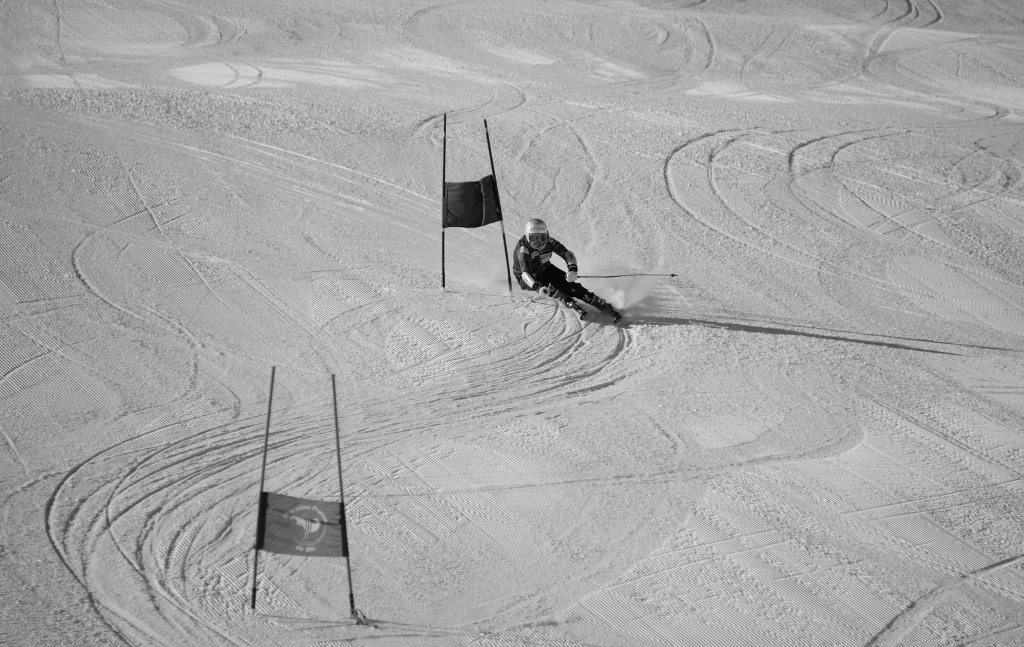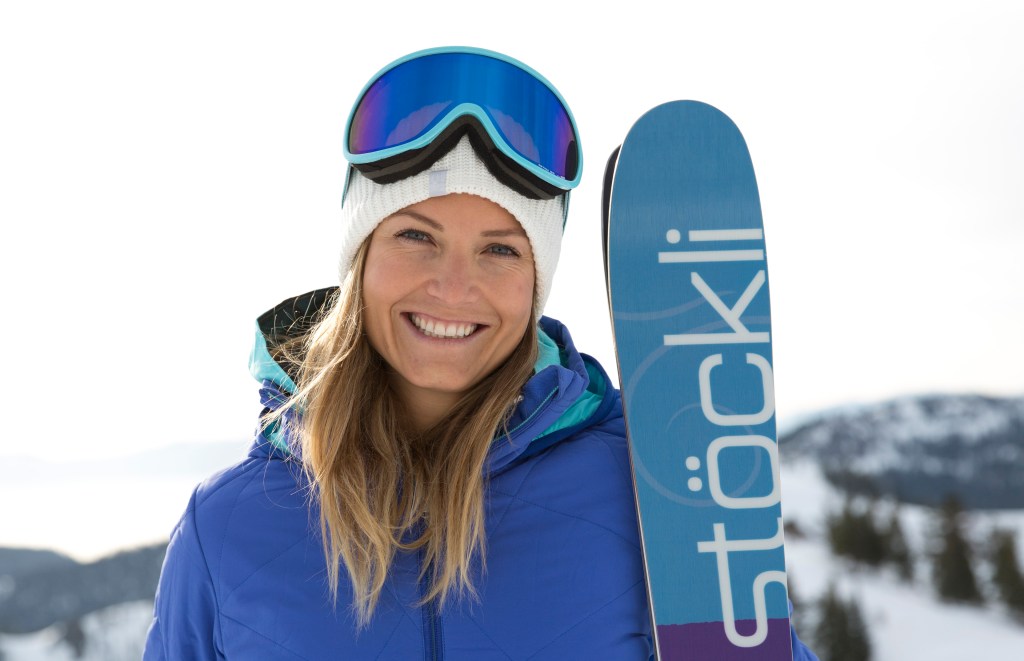Ski racer Julia Mancuso was only 15 years old when she made her World Cup debut in 1999. Since then the Squaw Valley, California, native has gone on to achieve a lengthy and decorated career as one of America’s most talented ski racers. She dominated the Junior World Championships in her teenage years, then went on to win seven World Cup races, four medals in the winter games and five World Championship medals. This winter, at the age of 33, Mancuso announced her retirement after a hip injury proved impossible to come back from. We called up Mancuso, or “Super Jules,” as she was nicknamed on the U.S. Ski Team, to talk about what she plans to do next.
You announced your retirement at a World Cup downhill race in Cortina, Italy, in January. How did you know it was time to call it quits?
The decision to retire was both the hardest thing I’ve ever done and the easiest. I’d been struggling with my hip basically my whole career. After my last hip surgery, in November 2015, I was naive about my recovery. I thought I’d just bounce back like I did from the last surgery. But with this surgery, I was having a hard time even walking. It took me a year to ski again. I was hoping one day it would just all click, but it wasn’t coming together. In Cortina, I was at this crossroads—I skied the downhill race and hit a bump and felt really sore. I knew it was time.
So the next day, you decided to compete in your final World Cup race dressed as Wonder Woman.
I just wanted to have fun and celebrate. There’s this awesome store in Cortina that has a whole sewing section, so I bought sparkly material and my teammates helped me sew the costume. We made a cape, I cut the legs off my speed suit, wore skin-colored tights and I put a tiara on my helmet. I figured the more I dressed up and the more fun I had, the less emotional I would be.
Throughout your career, you famously wore a tiara on the podium at big races and spent much of your off-season surfing in Hawaii. How important has it been to you to not take racing too seriously?
When I was younger, I tried so hard and I would get so disappointed when things didn’t go my way. I had a couple of seasons when I was younger where I just hated it—I didn’t want to be racing. Around age 18, I had this turning point where I realized it wasn’t about winning every race I entered, it was about enjoying the journey and having fun. I had to tell myself, this is fun, this is a rare opportunity. I decided I wasn’t doing it for anyone else, I was racing only for myself. It took the pressure off. After that, I started winning races and I realized, this is how it’s done.

Julia Mancuso retired from ski racing this year, but that doesn’t mean she will stop skiing. (Photo Credit: Dylan Fish)
You’ve been a podium contender your entire career. Was it hard accepting that you were no longer at the top?
I don’t have this ego going into my racing. I ski because I love it. I always have the respect of other athletes. Everyone always discounts people for not winning, but there would be no room for winners if the rest of the field wasn’t contributing to the sport. I knew this hip injury was a huge hurdle to overcome. So I was proud to be in the World Cup, even if I was seconds behind.
What was the reaction like from others when you said you were retiring?
When you’re injured or you’re having a hard time coming back, it feels like you’re all alone. But the second I retired, a flood of opportunities came my way. All these emails came with talk of future collaboration. Some of it was funny stuff, like I got this email from someone opening an underwater bar, like an adventure nightclub, and they asked if I wanted to be an underwater waitress. One of my teammates asked, ‘Will you coach us?’ That was really touching and heartfelt. She wanted my energy around.
Let me guess: You said no to both of those offers?
I don’t think I even responded to the underwater waitress, and I love coaching, but I couldn’t see myself spending nine months of the year on the road again. That’s been my whole life. It’s time for me to take a deep breath and spend some time at home.
Where will homebase be now?
My husband works in Fiji, so we’ll definitely get our surfing in. I’ve been on the road for 18 years, and although I still want to travel, I hope to spend more time at home in Squaw Valley and Maui, Hawaii, as well. I’ve always loved going to Hawaii because it’s very rejuvenating and easy on my body. It’ll be a balancing act between places.

Julia at home in Tahoe. (Photo Credit: Squaw Valley)
You started a women’s underwear line and you opened a gym near your hometown in Truckee, California. Will you continue being an entrepreneur?
Even the past 10 years, skiing has been a hobby. I’ve always had businesses on the side. At my gym in Truckee we’re building a new 20,000-square-foot space with a climbing gym. My father is the builder and I’m helping with the design. It’ll hopefully be open by the end of 2018.
What else do you have planned for the future?
I took a health coaching course when I was injured, so I’m hoping to do online health coaching. I love health, wellness and fitness—those are the major tools that turned me into the athlete I am. I have this goal to help people find their motivation and find what’s fun for them.
In 2010, you showed up at the Verbier Xtreme—one of the world’s toughest big-mountain competitions—and placed third, essentially out of nowhere. Do you envision yourself getting into freeskiing competitions?
It depends on how I’m feeling. If I’m feeling good, I might do a competition or two to have fun. That feels like a proving ground, and not that I need to prove anything, but sometimes it’s fun to show up and say hi. For me, traveling and freeskiing is more about the journey and exploring new places and pushing yourself athletically at the same time. I love competitions, but I’ve dealt with so much pressure my whole life, so I’m ready to take a break from that, too.
